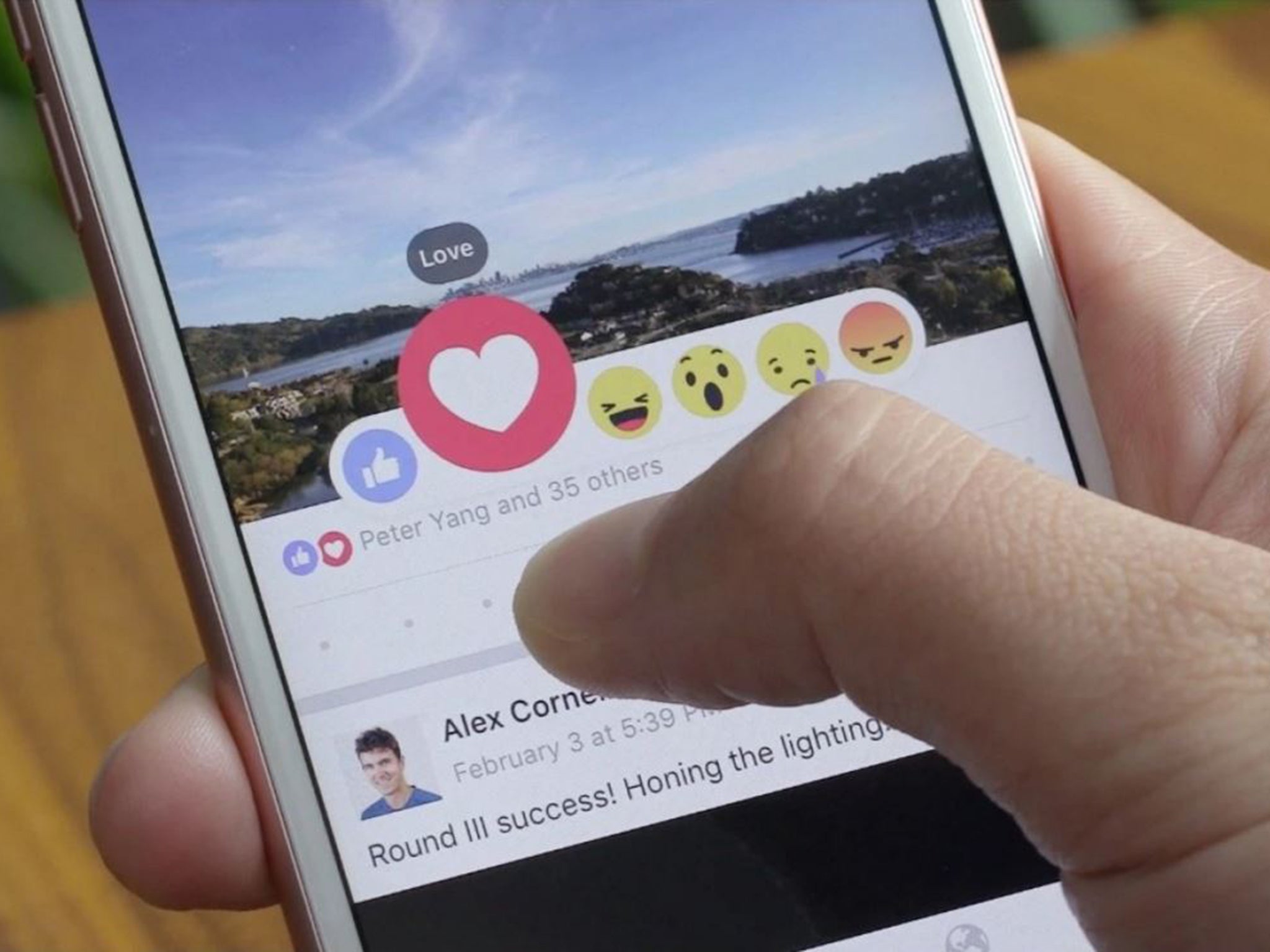Facebook Reactions: Belgian police warn citizens not to react to posts on social media
Your mood is being monitored

Your support helps us to tell the story
From reproductive rights to climate change to Big Tech, The Independent is on the ground when the story is developing. Whether it's investigating the financials of Elon Musk's pro-Trump PAC or producing our latest documentary, 'The A Word', which shines a light on the American women fighting for reproductive rights, we know how important it is to parse out the facts from the messaging.
At such a critical moment in US history, we need reporters on the ground. Your donation allows us to keep sending journalists to speak to both sides of the story.
The Independent is trusted by Americans across the entire political spectrum. And unlike many other quality news outlets, we choose not to lock Americans out of our reporting and analysis with paywalls. We believe quality journalism should be available to everyone, paid for by those who can afford it.
Your support makes all the difference.Belgian police have warned citizens not to use Facebook’s new Reactions, to protect their privacy.
In February, the site launched six new ways of reacting to a post, alongside the Like button. They were intended partly as a way of answering calls for a “Dislike” button – allowing people to share their feelings about posts without appearing to endorse what had been said.
But the Belgian police now says that the site is using them as a way of collecting information about people and deciding how best to advertise to them. As such, it has warned people that they should avoid using the buttons if they want to preserve their privacy.
“The icons help not only express your feelings, they also help Facebook assess the effectiveness of the ads on your profile,” a post on Belgian’s official police website reads.
The site is able to use the tool to tell when people are likely to be in a good mood and then use that to decide when is the best time to show them ads, the Belgian police has claimed.
“By limiting the number of icons to six, Facebook is counting on you to express your thoughts more easily so that the algorithms that run in the background are more effective,” the post continues. “By mouse clicks you can let them know what makes you happy.
“So that will help Facebook find the perfect location, on your profile, allowing it to display content that will arouse your curiosity but also to choose the time you present it. If it appears that you are in a good mood, it can deduce that you are more receptive and able to sell spaces explaining advertisers that they will have more chance to see you react.”
People have pointed out that Facebook’s Reactions tool is helpful to advertisers since it was released. Though the site said as it was launched that it was a way of allowing people to react in more complex ways, it also provides valuable data to Facebook about how things make people feel, as well as encouraging them to interact with posts amid worries that people are becoming less and less personal on the site.
Soon after the feature was released, Facebook also confirmed that reacting angrily to a post would be treated as any other kind of engagement with it. Since Facebook treats engaging with a post as an indication that users want to see more things like it, that means that reacting angrily could lead to seeing similar posts and could be sold to advertisers, too.
Join our commenting forum
Join thought-provoking conversations, follow other Independent readers and see their replies
Comments